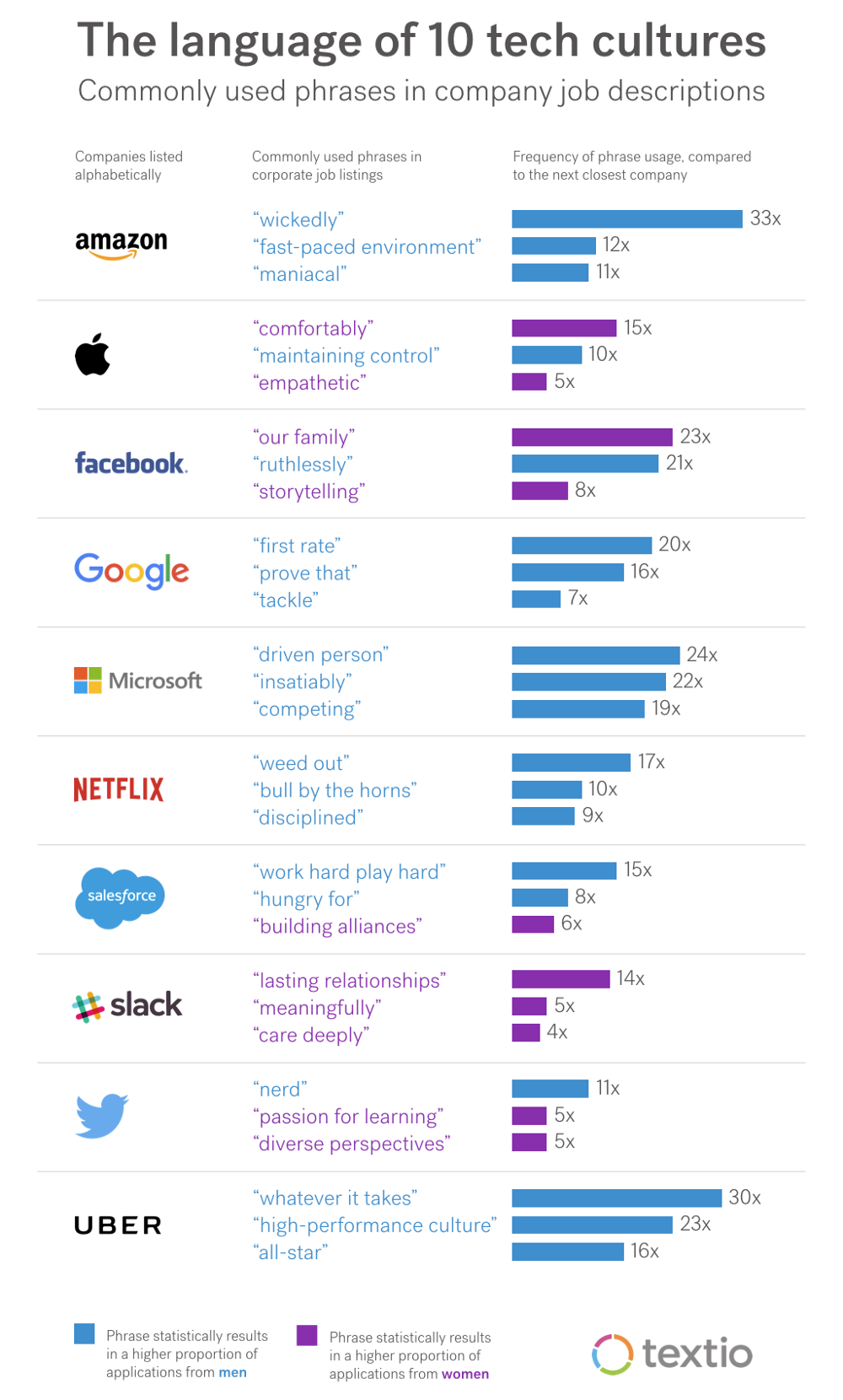
This is a contributed post by participants in the 2017 Diversity and Inclusion in Scientific Computing (DISC) Unconference.
Read our prior posts in the series:
Brainstorming session: Bringing inclusive marketing to recruitment and outreach
Our team, in alphabetical order:
- Amelia Kallaher, Cornell University
- Christine Custis, Shenandoah University
- Dave Clements, Galaxy Project
- Jane Herriman, Julia Computing
- Nathan Goldbaum, University of Illinois
- Noam Ross, EcoHealth Alliance/rOpenSci
- Sarah Supp, Denison University
—

At this year’s Diversity and Inclusion in Scientific Computing (DISC) Unconference, held in conjunction with the November 2017 PyData NYC conference, participants broke into a variety of working groups aiming to tackle issues related to diversity and inclusion. Our working group chose to brainstorm ways to make recruitment and outreach efforts (for example, for hiring managers or educational organizations) more inclusive.
Simple language choices can impact an audience, particularly members who self-identify as underrepresented within that audience.
Simple language choices can impact an audience, particularly members who self-identify as underrepresented within that audience. Thoughtful language choices can signal that an organization is aware of the environment they create and how that environment leads to the promotion and success (or not) of its community members. Furthermore, the wording we choose to advertise our events, jobs, programs, and company culture will invite some individuals in and encourage others to select out. Therefore, intentionally changing the language of external and internal communications to be inclusive and welcoming can expand applicant pools and increase diversity at an organization.
Our working group came up with some ideas and best practices that we think will help make your recruitment and outreach efforts more inclusive, whether you are:
- Writing a public facing website or blog,
- Recruiting job applicants, conference participants, or conference speakers,
- Hosting an internal education or training, or
- Fostering communication among members of your organization.
Reframe hard skills wherever possible.
Rather than simply giving a list of technical skills required that reads like a list of university courses (C++, python, machine learning, SQL, linear algebra, advanced calculus, etc…), consider providing the tasks that you want your organization’s new members to perform, i.e. problem solving, communicating complex topics to end users, designing workflows to develop new insights, etc.
Make expectations clear.
Make clear your expectations and the skills you are seeking in a desired applicant. Ambiguously defined expectations will cause some people to self-select out. Give real world examples in defining your expectations. Furthermore, describing the demands of the work to be done or position to be filled, rather than the ideal candidate you’ve envisioned, may help attract candidates who are more than capable of performing the work at hand but do not identify with that ‘ideal candidate’. For example, don’t simply ask for a ‘rockstar programmer’ or even ‘an advanced C++ programmer’. What does ‘advanced’ mean to your company and project? Do you want someone who has written more than 10,000 lines of C++ code? Someone who has been working with object oriented code in C++ for more than 2 years?
Avoid stereotypes.
Avoid gendered pronouns and descriptors that are loaded with stereotypes about gender, sexual orientation, race, etc. For example, refer to your desired applicant as ‘you’ or ‘they’ instead of ‘he’. When holding community/company/organization events, invite community members to bring ‘their spouses or partners’, for example, rather than ‘their wives and girlfriends’. A great reference is here.
Choose adjectives carefully.
Choose adjectives carefully, being aware of how certain adjectives are gendered. For example, can you reframe a desire for someone who is ‘ambitious’ as someone who is ‘motivated’, or someone who is ‘hard-working’ as someone who can ‘handle a lot of responsibility’? You may be looking for a ‘leader’ but you probably also want someone who can ‘work well with others’ (else they will have no one to lead). Can you include both descriptors in your posting? We found a helpful resource here that searches your writing for ‘female-coded’ or ‘male-coded’ words.

Be wary of word choices.
Be wary of word choices that may be loaded with negative connotations, double meanings, or implied barriers. A “workshop” may feel more accessible to some individuals than a “bootcamp,” and some people may not identify with the stereotypical “hacker,” though they may identify as an “engineer,” “builder” or “developer.”
Humanize your organization.
Finally, look for opportunities to humanize your community’s or organization’s members to help prospective members identify with them. You can do this by providing anecdotes or short bios on current members of your community. For example, the American Statistical Association has an article in each of their journal publications about a statistician in the theme of “what does a statistician do when not doing statistics?”.
We hope these recommendations prove helpful, and thank NumFOCUS for hosting the DISC Unconference!
